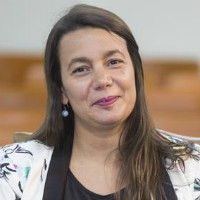The Group of Twenty (G20) leaders summit is set to take place in Bali, Indonesia, on November 15 and 16 at a time of expanding global divisions. Strategic competition is increasing tensions between the United States and China, Russia’s invasion of Ukraine is reverberating echoes of a possible new cold war, and divergent economic policies could further exacerbate gaps between advanced economies and emerging and developing countries. In this Council of Councils global perspectives series, five experts recommend what the G20 summit’s priorities should be and reflect on what growing geopolitical tensions mean for the group's future.
The G20 Must Guarantee Security
The G20 was created as a group of heads of states with an objective of providing stability in the midst of global financial market disruption. This goal, however, needs to shift toward guaranteeing security.
The war in Ukraine and its repercussions for the world economy put the security of billions of people at stake. The war affects them either directly, by rendering them victims of war and military occupation, or indirectly, in terms of food insecurity.
Although the Indonesian government has rightfully placed issues such as the global health architecture, digital transformation, and a sustainable energy transition on the summit’s agenda—all important topics that merit enhanced cooperation among the major world and regional powers—Russia’s participation and the way it acts on the questions of war and food security are likely to absorb most attention in three ways.
First, the world is waiting to see whether Russian President Vladimir Putin attends the G20 summit in person, by video, or not at all. This question is not unrelated to the invitation that Indonesian President Joko Widolo has extended to Ukraine’s President Volodymyr Zelenskyy to attend the summit. Second, Russia's decision to cease cooperation with the UN-led grain export initiative and then reverse course and rejoin the agreement is likely to overshadow all other negotiations in Bali. Third, the question of nuclear weapons entering the war in Ukraine, which development would have the potential to escalate to an extent that could force the United States and its allies to become involved directly, is looming. This issue is likely to dominate in discussion among world leaders, in particular between the United States and China, the United States and Russia, and certainly between the European leaders and Russia if leaders should indeed agree to meet.
Chinese President Xi Jinping, as the recently confirmed third-term leader of an aspiring world power, is expected to attend the summit. He is unlikely, however, to accept that Putin’s participation overshadows his own, which could lead him to arm-twist Russia into a renewal of the UN grain agreement, which is set to expire on November 19. To agree would not cost Russia anything. It would, though, allow both Xi and Putin—as leaders of authoritarian states—to be applauded on the world stage for providing food security.
Aware of the risks the current situation poses, European leaders and the United States should stay laser-focused on the looming security concerns over the use of nuclear weapons. The Western coalition’s priority should be to convince Xi to exert just enough pressure on Putin to keep him from crossing this red line. To be effective, European leaders will have to put aside their current disagreement over the most appropriate economic and energy policy approaches.
Indonesia Needs to Foster G20 Cooperation Amid Geopolitical Storms
Indonesia’s presidency of the G20 was never going to be an easy task. It faced two difficulties from the start: to make the G20 agenda relevant and to bridge divergent interests and aspirations, particularly between developing and developed countries. The G20 has been criticized for losing its relevance in its failure to deal with the COVID-19 pandemic and resulting crisis. It came late with an action plan to respond to the pandemic and, despite devastating consequences, has fallen short in coordinating greater cooperation.
Indonesia is trying to focus its’ G20 agenda on three priorities: the global health architecture, digital transformation, and sustainable energy transition, in addition to post-pandemic macroeconomic policies. To a certain extent, it has managed to direct the discussion at the G20 to a handful of critical issues. Indonesia, however, has found it difficult to bridge the diverse interests among the G20 members. At the same time, the Group of Seven (G7) has become stronger by aligning members' strategic interests and presenting competing arrangements to the global agenda.
The war in Ukraine and increasing geopolitical tensions elsewhere make coordination almost impossible. The world needs cooperation more than ever to combat the increasing risk of crises—from inflation to insecurity to the threat of economic recession—but meeting challenges is much more difficult in a context of geopolitical rivalries.
Given this tension, Indonesia’s presidency is unlikely to secure any consensus on commitments. A series of G20 ministerial meetings already failed to agree to a communiqué. The leaders meeting in November is likely to find similar difficulties in drafting one. However, the success of this year’s G20 cannot be measured simply by official documents. Given overwhelming pressure from certain members—some threatening a boycott should Russian President Vladimir Putin attend—keeping the G20 in one piece is a big achievement for Indonesia.
The main task for Indonesia is now to keep the process going. To that end, it should focus the summit on discussing timely global challenges such as food security, digital transformation, and energy transition. President Joko Widodo should keep the discussion on geopolitical issues to a minimum yet underscore the importance of cooperation. The next task is to ensure the continuation of discussing important issues during India’s presidency next year and to remain active as one of the Troika leaders of the G20. Indonesia should bring back the spirit of the 1955 Bandung declaration, when thirty countries in Asia and Africa, mostly less developed at that time, agreed to declare their nonalignment during the Cold War and to promote cooperation. The Bali summit may not produce any declaration, but the spirit of cooperation should be elevated and continued in the years of the G20 process to come.
Will Any Sound Emerge from Indonesia?
The early promise of the G20 shown in its initial days when responding to the 2009 financial crisis has withered. The spring meetings of the International Monetary Fund (IMF) and World Bank ministers not only demonstrated little progress on shared global challenges but also showed no firm resolve to make advances. Against this backdrop, prospects for the G20 meeting in Indonesia seem dim.
An old philosophical question asks whether a tree that falls in a forest when no one is around to hear it makes a sound. The G20 and the IMF and World Bank’s Ministerial Steering Committees having recently been unable to issue a communiqué because of a lack of consensus, a similar question arises. What, if anything, will emerge from the next G20 leaders meeting scheduled for Indonesia on November 15 and 16?
To be clear, this situation results from Russia’s brutal invasion of Ukraine. Western countries are not prepared to carry on as usual. Indeed, many would prefer to see Russia kicked out, or at least suspended, from the G20 and even from the IMF. China, India, and G20 host Indonesia, among others, are not prepared to support such a move, however. Still others, such as Saudi Arabia, find the situation convenient so as not to be isolated on other critical issues. Growing U.S.-China tensions only complicate matters further.
The world is facing daunting challenges. Because of their failure to coordinate, countries need to successfully tighten monetary policy to reduce inflation while avoiding global monetary policy overkill. They also need to respond to the food and energy crisis that is threatening hundreds of millions of people.
On climate change, the UN Environment Program’s Emissions Gap report released this week emphasized that the world is simply not doing enough to meet any of the agreed global goals on limiting future warming. A summer of record heat and storms has had little effect on policies and the UN secretary-general has declared that “We are headed for a global catastrophe.”
Many in the developing world are facing huge debt challenges exacerbated by global recessionary fears, currency movements, a food and energy crisis, and costs of climate adaptation. The challenge was recognized by the G20 in its development of the Common Framework, but little progress has been made in implementing it.
These are the issues that will determine success or failure when leaders meet.
In 2009, amid a global economic crisis, then G20 chair UK Prime Minister Gordon Brown threw the preparatory work by sherpas out the window, declaring that it was just not good enough. Heads of government went on to develop a response the world saw as credible and offering hope. It may be too much to hope for such a moment in Indonesia—but it is what is needed.
How the G20 Can Prioritize the Global South—and Improve Cooperation
As the G20 gained in scope and significance over the years, it was increasingly affected by geopolitical tensions and great power rivalry. The multidimensional effects of the COVID-19 pandemic coupled with the current war in Ukraine have exacerbated the challenge of turning differences into shared interests. The multilateral system is under great pressure. At a time when cooperation is most needed, it is perhaps also most difficult to achieve.
Indonesia adopted the theme “Recover Stronger, Recover Together” to reflect the need to address a post-pandemic world. The expected recovery is not stronger, however, nor is much togetherness evident. The Russia-Ukraine war has heightened great power tensions and made this a particularly challenging year for the G20. Being able to stick to the agenda despite all odds has been an accomplishment. Indonesia’s long adherence to the principle of “free and active” foreign policy, emphasizing neutrality and nonalignment, has been pivotal and will undoubtedly be put further to the test in Bali. Amid geopolitical and economic tensions, steering away from more controversial issues and concentrating on common ground will be a challenge for Indonesian diplomacy. However, achieving a joint communiqué at the Bali summit is unlikely, the most probable scenario being, in Association of Southeast Asian Nations style, a summary provided by the chairman.
The Bali summit is the first in a series of Global South G20 presidencies: India in 2023, Brazil in 2024, and South Africa in 2025. In the midst of major power rivalry and a growing divide between rich and emerging countries, shifting the focus to developing countries’ issues with four continuous Global South presidencies is not only most welcome but also urgently needed. The G20 needs a more balanced agenda in line with addressing the structural challenges that developing countries face. It should also focus on the painful consequences of the pandemic and Russia’s war in Ukraine, which is in some countries hitting the world’s poorest the hardest with soaring energy prices and food scarcity.
This balanced agenda should also include the understanding that the pathways to economic development differ across countries, and that the move toward sustainable development we all aspire to needs to be balanced in its three pillars: economic, social, and environmental. Such a balanced Global South agenda will also hopefully help shift the focus away from great power rivalry and toward a more inclusive, multifaceted, and enriched perspective of sustainable development and cooperation.
The G20 Needs to Restore Its Credibility as a Crisis Committee
An atmosphere of hostility has hung over this year’s G20 process, and the tensions are set to dominate the summit in Bali. The deep geopolitical rift already prevented the G20 finance ministers and central bank governors meetings from issuing joint statements. The intense strategic competition and economic decoupling efforts between the United States and China continue to worsen, exemplified by U.S. President Joe Biden signing the CHIPS Act, which could further dampen international businesses confidence in the global economy. The geopolitical tensions are putting the global economy, and globalization, at risk.
Under this backdrop, the G20 leaders should reestablish the forum’s image as a crisis committee before discussing a more ambitious global economic governance agenda. They should address three important priorities at the summit.
First, the G20 should attempt to facilitate the end of the Russia and Ukraine military conflict as soon as possible. This is a necessary precondition for any effective global economic and social measures the G20 can hope to achieve. The war has made everyone suffer, especially those living amid the conflict and in the surrounding region. The global energy and food crises are hitting African and European countries hard, and will not end anytime soon without a quick peaceful resolution.
Second, the G20 should enhance monetary policy coordination. This should inject confidence in global markets and prevent any worsening in the global economy. As the World Bank warns, central banks around the world have been simultaneously raising interest rates in a way the world has not seen in the last five decades. Strikingly, this round of U.S. monetary policy tightening is not only causing great economic volatility for emerging and developing world, but also causing panic in other Group of Seven economies. The world therefore needs comprehensive G20 coordination. The leaders should also draw red lines about the economic and technology decoupling.
Third, the G20 should take meaningful measures to aid the most vulnerable groups in the developing world. Concerns over an emerging sovereign debt crisis are rising. The IMF disclosed that more than one hundred countries had requested emergency financing since the outbreak of the pandemic. G20 countries should address this issue as a common challenge rather than blaming each other. China has worked with the Paris Club on implementing the G20 Common Framework on debt treatment beyond the G20’s Debt Service Suspension Initiative. A case in point, this summer, Zambia was able to secure an agreement with China and France, which co-chair a committee of official bilateral creditors as part of a debt restructuring arrangement with Zambia under the G20 Common Framework, before private creditors made any concessions, which is vital for Zambia to get a timely access to IMF resources and avoid further deteriorating its sovereign debt rating.
The G20 Common Framework still faces a severe collection action dilemma, but it is not useful for U.S. Secretary of the Treasury Janet Yellen to single out China as the major obstacle for the process to go ahead. For major bilateral creditors such as China to contribute more, the G20 leaders should ask multilateral development banks to be more ambitious in recapitalization and resource mobilization.











